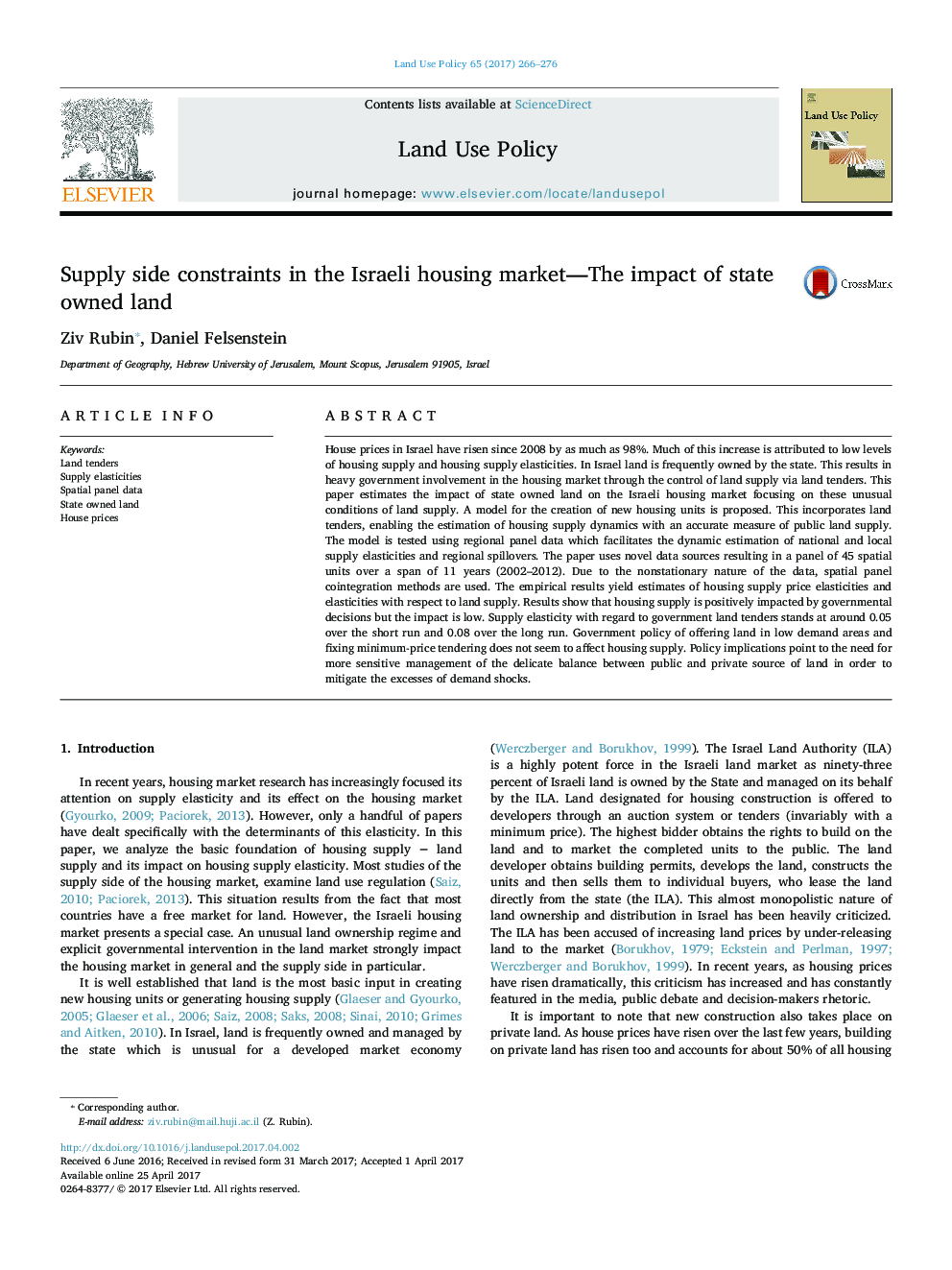| Article ID | Journal | Published Year | Pages | File Type |
|---|---|---|---|---|
| 6461157 | Land Use Policy | 2017 | 11 Pages |
House prices in Israel have risen since 2008 by as much as 98%. Much of this increase is attributed to low levels of housing supply and housing supply elasticities. In Israel land is frequently owned by the state. This results in heavy government involvement in the housing market through the control of land supply via land tenders. This paper estimates the impact of state owned land on the Israeli housing market focusing on these unusual conditions of land supply. A model for the creation of new housing units is proposed. This incorporates land tenders, enabling the estimation of housing supply dynamics with an accurate measure of public land supply. The model is tested using regional panel data which facilitates the dynamic estimation of national and local supply elasticities and regional spillovers. The paper uses novel data sources resulting in a panel of 45 spatial units over a span of 11 years (2002-2012). Due to the nonstationary nature of the data, spatial panel cointegration methods are used. The empirical results yield estimates of housing supply price elasticities and elasticities with respect to land supply. Results show that housing supply is positively impacted by governmental decisions but the impact is low. Supply elasticity with regard to government land tenders stands at around 0.05 over the short run and 0.08 over the long run. Government policy of offering land in low demand areas and fixing minimum-price tendering does not seem to affect housing supply. Policy implications point to the need for more sensitive management of the delicate balance between public and private source of land in order to mitigate the excesses of demand shocks.
